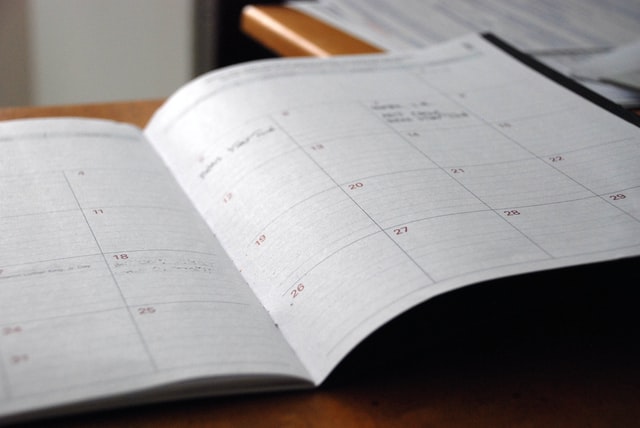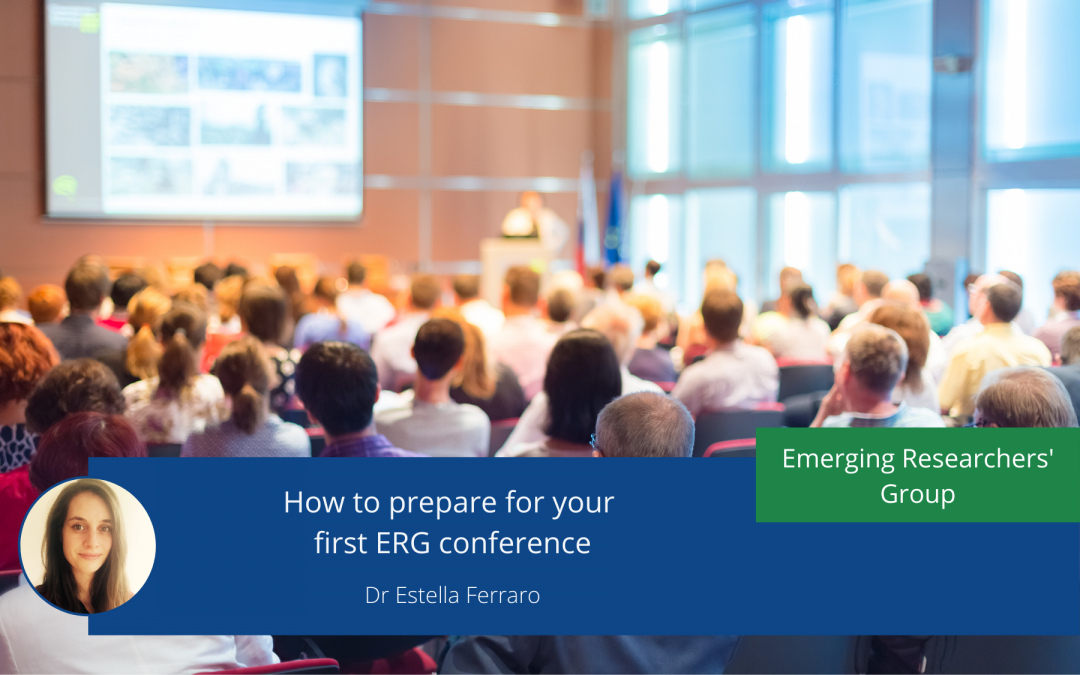The Emerging Researchers’ Group holds an annual conference, the Emerging Researchers’ Conference (ERG), preceding the European Conference on Educational Research (ECER). We asked Estella Ferraro for some tips on preparing and attending your first ERG Conference.
Going to an international conference for the first time can be overwhelming and exciting at the same time. It is an excellent opportunity to meet fellow colleagues from all over the world – I have met colleagues from Europe but also from Australia, Asia, South America, and Africa. It also gives you feedback on your research from outside the own academic framework, which can really open your eyes to entirely new perspectives.
You can’t just show up on the first day of the conference. There are a number of preparations you should undertake, and some of them start months before the conference even takes place. Especially when planning to go to ECER for the first time, it is easy to lose track of the upcoming necessary deadlines. So here are some tips on how to prepare for your first (or second or third) ERG conference.
Deadlines and preparations in advance to the conference

The Proposal
Many reasons may have led you to want to attend the ERG conference. Perhaps the topic is of great interest to you, or you have always wanted to travel to the place ECER takes place that year, or maybe your supervisor asked you to come along. The first decision is if you wish to present yourself or if you are attending to watch, learn, and network. Both have their advantages: it can be very inspiring to participate for the first time without being nervous or stressed about your own presentation, especially if your funding permits that.
On the other hand, I would suggest that if you have a chance to present you should go for it! The ERG conference is a great place to practice your presentation skills and get helpful feedback on your research in an extremely friendly atmosphere on an international scale.
Submission usually starts in December before the conference and ends in January. You can find the current deadline here. This timeline is something you should keep in mind and plan for so you can write the proposal and hand it in in time.
Funding
With that in mind, you might also consider funding opportunities. There are many opportunities for travel grants and funding you can apply for (from EERA, your home country, or home university). It is worth researching the conditions and deadlines for funding opportunities so that you don’t miss a chance! Make sure you can get all necessary documents in time, especially if you need something from others who might take some time such as a recommendation letter.
Accommodation, Visa and Flights
Obviously, this won’t apply if the conference takes place digitally. In April review results are usually announced, and this is when things get real! It can be advisable to book accommodation even before results are announced if you have an option to cancel free of charge. ECER is a huge conference and often in small cities so affordable accommodation can be booked out quickly. Don’t leave this to the last minute. Similarly, if you need to apply for a visa, check the deadlines so you don’t miss anything.
Deadlines and Preparations Closer to the Conference

Preparing your Presentation
Once time draws closer to the conference, you should start preparing your paper if you have been accepted to present one. Here it is important that you don’t overload your presentation as timing can be tricky. Participants often want to include too much information, while often it’s better to keep it simple and clear. Don’t be scared about presenting in another language. Your English doesn’t have to be perfect and, in my experience, everyone at the ERG conference is really helpful even if you forget how to say something. If you have questions on your research or about something you’re stuck with, it’s fine to ask for that in the discussion too, so that you can really get the most from your experience and presentation at ECER.
Scheduling your conference
Look at the schedule and think about what interests you, and what you want to get out of the conference. Be prepared to pick out some sessions in advance but also accept that sometimes you might end up spontaneously changing your mind. Don’t overschedule yourself Leave some space for networking opportunities and meeting other academics as well.
Finally, all I can say is the emerging researcher conference is an amazing platform to learn, engage and network, so: Enjoy your time there!
Further Information
Find out more about the ERG Conference, including deadlines, programme, and accepted presentation formats on the EERA website.
Want to know what to expect? Have a look at the previous ECER and ERG conferences and check out our YouTube channel for videos of the ECER keynote sessions in 2020.

Dr Estella Ferraro
Dr Estella Ferraro (née Hebert) is a Post-Doc researcher at the Goethe University in Frankfurt at the chair for theory and history of education. She is also a co-convenor for the Emerging Researchers Group and for Network 6 Open Learning: Media, Environments, and Cultures of the European Educational Research Association (EERA). Her research interests focus on questions of media education including teaching and learning with new media, datafication and big data, digital surveillance, identity in the light of personal data, and questions of digital ethics. Her PhD thesis published under the title of „Willful Blindness – on the relationship of identity, agency and personal data“ exemplifies the intersection of a bildungs-theoretical perspective with post-digital theories that characterise Dr Ferraro as a researcher.
She has over six years of experience in teaching and researching media education and has worked and studied internationally. For more information on her research and work go to: https://www.uni-frankfurt.de/55826755/Estella_Hebert

